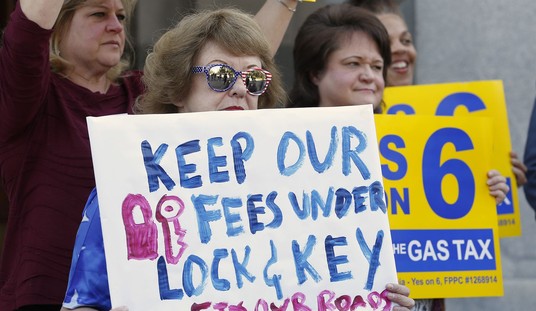Four years ago, at about 6:45 AM PST, that’s how the day began for my wife and I–and quite possibly, you too. In a Blogosphere retrospective, Lorie Byrd of PoliPundit was kind enough to include this post from the year after, which collects a bunch of items I wrote about 9/11. (When I saw her link, I updated it with a couple of more items, and replaced a couple of previously expired hyperlinks.)
If a writer as great as Virginia Postrel can look back on March 11, 2002 and conclude, “Much of what I wrote on this site six months ago, now seems banal or confused, although I can’t say I’d take anything back”, then keep similar thoughts in mind when reading my work about that day.
PoliPundit also has a look back on what has changed since that terrible day, and Orrin Judd links to what has become one of the most important and iconic photographs of the day, entirely because of the Blogosphere and other grass roots Websites–and equally entirely despite the best efforts of the legacy media to block it. (The Pajamas Media homepage has a retrospective slideshow of many additional photos. The simple fact that the Blogosphere exists is itself a testiment to 9/11, of course.)
Not everything has changed though. In his speech about the event nine days later, President Bush said, “Every nation, in every region, now has a decision to make. Either you are with us, or you are with the terrorists”. On October 1st, Rudy Giuliani added:
On one side is democracy, the rule of law, and respect for human life; on the other is tyranny, arbitrary executions, and mass murder.
We’re right and they’re wrong. It’s as simple as that.
And by that I mean that America and its allies are right about democracy, about religious, political, and economic freedom.
The terrorists are wrong, and in fact evil, in their mass destruction of human life in the name of addressing alleged injustices.
For many Americans, 9/11 was the end of much moral equivalency when it comes to dealing with evil–but as Roger L. Simon notes, sadly, there’s still a fair amount of what Paul Johnson, in Modern Times called moral relativism left in many who should know better.
Update: Speaking of moral relativism, events such as this and this, happening so closely to the anniversary of 9/11, help to define exactly what the term means.
Sharply contrasting the meaning is a decision by Alex Tabarrok.










Join the conversation as a VIP Member